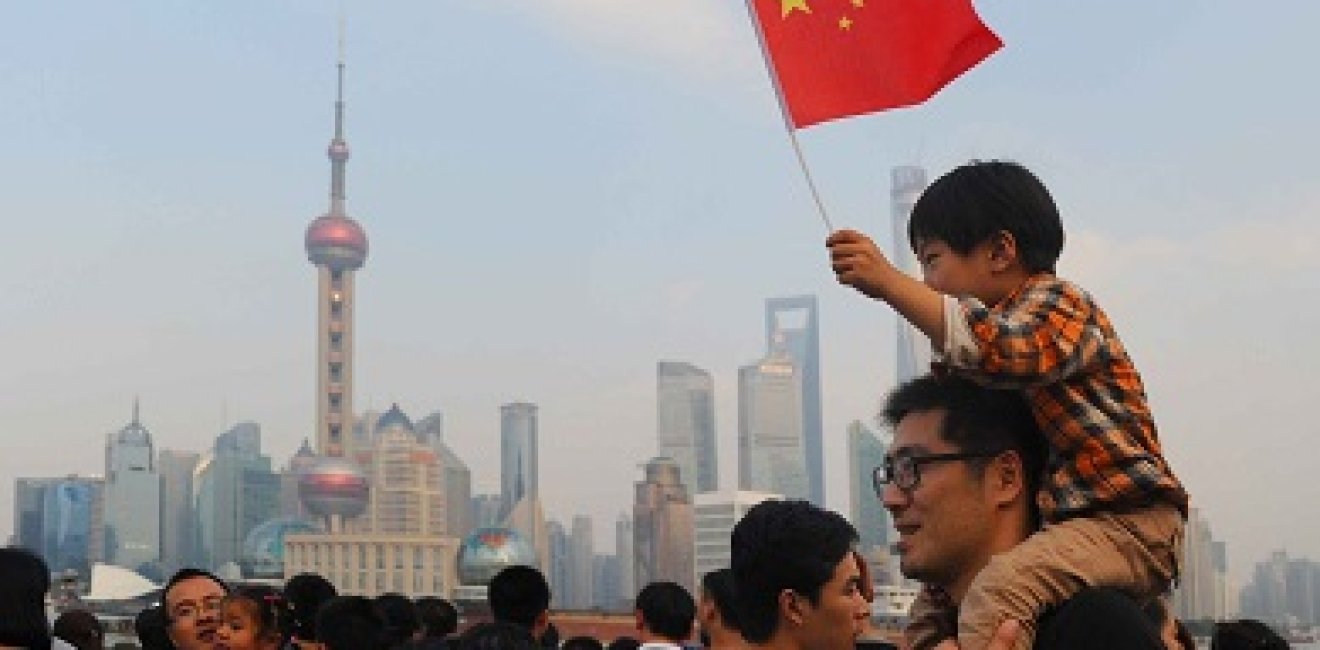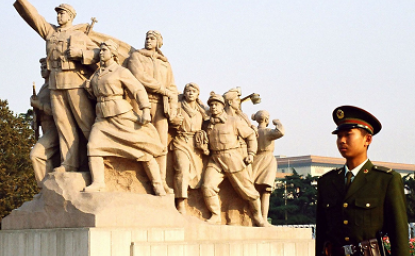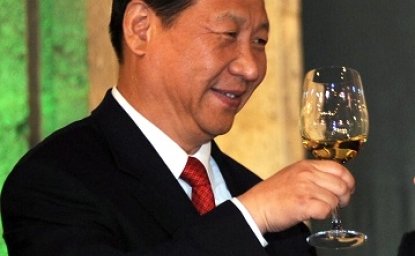This article was originally published on freedominfo.org.
The author is a Kissinger Institute Fellow, on leave from the Yale Law School China Center. The views expressed in this article are solely those of the author.
China’s recent actions under Communist Party General Secretary Xi Jinping at home and abroad have prompted many observers to question whether Xi’s reform agenda entails a reversion to the authoritarian days of Mao Zedong. Yet, in the midst of a wide-ranging anti-corruption campaign, an unprecedentedly severe crackdown on expression and advocacy by lawyers, journalists and other activists, missteps in communicating recent currency and financial decisions that threw markets into turmoil, and China’s opacity regarding its intentions in the South and East China Seas, the Chinese Party-state continues to press forward with putting in place and improving new governance mechanisms to achieve “open government” as part of its broader goal of more innovative, clean, service-oriented and law-based government.
Disclosure of government-held records, transparency and public participation in rulemaking and policymaking, requiring government officials to explain their actions to the public and other mechanisms to help curb abuse of discretion and enhance government accountability to the people — all governance innovations that preceded the Xi administration under the rubric of “transforming government functions” and “reinventing government” — continue to be developed under Xi.
A new guideline published jointly by the Party Central Committee and the State Council calls for comprehensively promoting the achievement of open government affairs by 2020,[1] the year by which the Party has pledged to achieve a “moderately prosperous society.” The February 2016 Open Government Opinions, which might be likened to an executive order on steroids, in that it is also backed by the sole political party in power, follows on the heels on another joint document issued in December[2] that set forth a more detailed program to improve law-based government during the period 2015-2020, in accordance with the general directives in the Party’s 2014 Fourth Plenum “Decision on Certain Major Issues in Comprehensively Promoting Governing the Country in Accordance with Law.”[3] The December instruction and the Fourth Plenum Decision both emphasized openness, repeating the principle that “disclosure is the norm, non-disclosure the exception” and calling for greater openness of government decisions, enforcement, management, public services and results.
The Open Government Opinions, consisting of 21 action items, reflect the challenges of attaining transparent governance, including the need to change official attitudes, improve regulatory systems, further emphasize information disclosure obligations and increase civic participation. The opening sentence declares that openness and transparency are basic features of rule of law government. Ensuring that power is exercised “in the Sunshine” is necessary to realizing socialist democratic politics, enhancing the country’s governance capacity, strengthening the state’s credibility and protecting the people’s rights to know about, participate in, express themselves about and supervise government action. Openness is also recognized as an important means to achieve economic and social development, stimulate social innovation and market vitality, and better address the concerns and needs of society.
The specific goals of the Opinions are, by 2020, to have raised open government to a new level; put in place an open government affairs “negative list” system; achieved transparency of the whole process of exercising administrative power and providing government services; clearly have improved disclosure systems, standards and the effective use of information technology, while achieving a high level of public participation; and, through openness and transparency, win the understanding, trust and support of the people. To help ensure implementation, governments at all levels are to designate a leading official to be responsible for open government work, which is to be included in performance evaluations and given increased weight in scoring, although it is not clear whether that is the evaluation of the government department or individual officials handling that work.
The scope of the term “open government affairs” used in the Opinions appears to be broader than that used in China’s statute on what the Chinese call “open government information” (OGI), which refers to access to government-held records. The State Council OGI Regulations took effect May 1, 2008[4] and require agencies at all levels of the Chinese government to disclose government records made or obtained in the course of exercising their duties both proactively and on request. The Regulations list broad, non-exhaustive categories of documents held in government files that should be made public by government agencies, public institutions and other entities performing public services, and stipulate only three broad exemptions from disclosure: for state secrets, commercial secrets and privacy. However, they also prohibit disclosure of any information that might endanger state security, public security, economic security or social stability. The number of information requests, appeals and lawsuits has increased over the nearly eight years those Regulations have been implemented, and the central government has continuously endorsed gradual expansion of the scope of information that is to be proactively disclosed through annual OGI work priorities issued each year since 2012. Moreover, the OGI Regulations have helped stimulate greater judicial, congressional and even Party openness as well.
The Opinions call for revision of the Regulations, a task that is already scheduled on the State Council’s legislative agenda, to further improve disclosure proactively by the government and on request. In spite of the impact of the OGI Regulations in promoting a greater degree and official acceptance of transparency in principle, government performance, particularly at lower levels of government, remains uneven, and officials and the public remain uncertain about exactly what can and cannot be disclosed and when.
The Open Government Opinions require central government departments and provincial level governments to formulate “negative lists” of more specific kinds of information that may not be disclosed, including information that might endanger state security, public security, economic security or social stability. All other information in principle is disclosable in accordance with law. How this open government affairs negative list relates to the OGI Regulations, and how these multiple negative lists will be coordinated so as to ensure uniformity of interpretation of what information should and should not be disclosed, remains to be clarified. Chinese scholars, officials and judges have recognized, in the course of implementing the OGI Regulations, that it would be useful to have more clearly defined exemptions the provide guidance, for example, on when information relating to law enforcement operations or policies that are under deliberation can be made public. It will be interesting to see what specific categories of information are added in these negative lists. The U.S. Freedom of Information Act has nine exemptions, only seven of which are actively used, but the FOI laws of many states have longer lists that are updated based on court decisions and changed circumstances, which can be useful in providing guidance to officials tasked with sometimes difficult disclosure decisions. Connecticut, for example, currently has 27 exemptions and Florida exempts more than 500 specific records from disclosure.
The Opinions direct that pre-disclosure secrecy examination procedures mandated by the OGI Regulations be improved, to properly handle the relationship between open government and ensuring the protection of state secrets under China’s Law on Safeguarding State Secrets. While China has made some progress in attempting to clarify and regularize its system for who can and how to classify and de-classify state secrets,[5] and some Chinese plaintiffs have successfully challenged the authority of a defendant to classify certain information, the broad scope of the definition of what is a state secret and lack of procedures whereby the public can challenge secrecy classification decisions and assertions on their merits have meant that the state secrets exemption remains an expansive loophole in the open government project. The fact that the OGI Regulations also penalize officials who release information that should not be disclosed makes it all too easy to simply refuse a disclosure request on secrecy grounds. Nonetheless, Chinese courts have on occasion disagreed with a government agency’s assertion of a state secrets defense to non-disclosure and, over the last few years, information relating to budgets and government expenses, soil pollution, and administrative penalty decisions that had once been protected as a state secret is now recognized to be public record.
As an accountability measure, the Opinions further require government agencies to publish and update lists of their specific administrative powers and responsibilities, so that the public can be clear about their tasks and powers, as well as their limitations. These lists are a new mechanism designed by the current administration to constrain and prevent abuse of government power, what Xi has referred to as “restraining power in a cage of regulations.”[6] While Premier Li Keqiang has announced a new principle that market players can do whatever is not specifically prohibited by law, government agencies are forbidden to take action unless they are specifically authorized to do so by law. As of March 2014, 60 central departments had published lists of their approval authority in respect of some 1,235 items and, as of the end of 2015, all 31 provincial level governments had published their “power lists,” while 24 of those had also published “responsibility lists.” The Opinions require municipal and country governments to publish both kinds of lists by the end of 2016. Similarly, all administrative user and special project fees are required to be made public, to help eliminate all unauthorized government fee collections through transparency.
The Opinions also call for more transparent, fair and just administrative law enforcement by government agencies, through making public not only the scope of enforcement authority, the procedures to be followed and the results of enforcement actions in areas such as the environment, food and drug safety, work safety, subsidized housing and land resources, but also the remedies for members of the public who object to any government enforcement actions.
Beyond the above disclosure requirements, the Open Government Opinions also emphasize the importance of public participation, the effectiveness of which depends on providing the public with adequate information based on which to make informed input. In the face of widespread protests over projects ranging from nuclear power to chemical to garbage incineration plants, the central and local governments have come to recognize they need to do a better job of engaging the public early in the decision-making process in order to understand and respond to their concerns and better inform them of the goals, details and risks involved, so as to help ensure sound decisions and garner support for the projects. To these ends, government at all levels is directed to explore new forms of public participation for different matters, and establish platforms for the government and the public to better interact. Public participation is emphasized particularly for what is called “major decision-making,” which covers decisions other than legally-binding rulemaking, including major policies, planning and decisions relating to government-invested projects. The State Council has been working on, and several provincial and local governments including Zhejiang, Jiangsu, Jiangxi, Gansu, Guangzhou and Xi’an, have already issued and are carrying out, procedures to regulate this decision-making process, which requires the five basic elements of public participation, expert input, risk analysis, legality review and collective discussion and decision.
The Opinions further specify that major decision-makings should have an advance disclosure system. A draft decision and justification for all matters relating to the public’s vital interests, significant reform plans, major policy measures and major projects should, except when they involve state secrets, be made public for input through such means as hearings, workshops, surveys, advisory consultations and media communication, and an explanation of the collected opinions and how they were considered should be published in an appropriate manner. Governments are directed to explore having stakeholders, the general public, experts and the media attend government meetings on these matters to increase transparency, and once the final decision is made, the “agreed matters” and related documents are to be promptly made public. Moreover, how these decisions are implemented and the results of inspections and audits, as well as any malfeasance or accountability issues, are also to be disclosed so the public can make suggestions for improvement. Such transparent and participatory decision-making procedures are similar to those that have been legislated, though still being improved, for lawmaking by the people’s congresses and rulemaking by the State Council and local governments.
Following the bungled handling of publicity regarding a high speed train collision near Wenzhou, Zhejiang province in 2011, the Party and State Council released joint opinions[7] urging greater efforts in open government work, including responding better to society’s concerns and providing information about incidents, emergencies and investigations. By 2013, the central government started promoting the practice of providing explanations at the time an action is taken or decision is made, frequently organizing experts to help with the explanatory work, as well as utilizing press conferences, which it had introduced in 2000 as a regular practice for both government and Party. The Open Government Opinions require all levels of government and their departments to utilize those who participate in policymaking, scholars and experts who are familiar with the issues and the media, as well as graphic charts, audio and video, to explain policies effectively. For especially controversial or complex issues relating to policies or regulations, press releases, policy briefings, interviews and articles should be used to explain the background, goals and important points. Leading officials at the central and provincial government levels are encouraged personally to appear at press conferences and policy briefings to discuss policies, especially regarding emergencies and issues of great social concern. Moreover, responsible officials should take interviews to authoritatively explain their position on policy issues, playing the role of “Number 1 Spokesperson” for their organization. For their part, the media and research institutes are charged with improving their own explanations of major Party and State Council policies. Governments are also to establish system for collecting, analyzing and responding to public opinion in an authoritative and timely manner, especially in the event of emergencies or other hot social concerns. The media is to be utilized as a bridge between the Party-state and the people, be invited to activities and given interviews so they understand major policies to quickly convey news and explanations, as well as help “guide” public opinion. While the emphasis on following public opinion and explaining government decisions has its instrumentalist goal of trying to manage public opinion, the Opinions clearly recognize that public understanding and acceptance of government policies is critical to enlisting public support for effective policy implementation.
The Opinions reaffirm earlier policies on promoting Big Data and the gradual sharing with the public of government data resources to support entrepreneurship, as well as the government’s new “Internet-Plus” initiative. They call for enhanced utility of the 86,000 official government websites as primary platforms not only for publishing and requesting official information, and soliciting public opinions, but also for providing all kinds of online government services including licensing applications and approvals, filing complaints and responding to the public’s concerns. Using government social media platforms to further disseminate information and provide services is also encouraged.
Lastly, the Opinions reiterate the importance of training government officials, especially leading cadres, about open government, raising consciousness about its importance and improving capacity to properly release information, explain policies and respond to society’s concerns. The Communist Party training schools, government training institutes and other cadre training centers, as well as universities, are to offer courses on open government to increase understanding and capacity, with a goal to have every official throughout the whole country who undertakes open government work receive at least one training within the next three years.
Establishing the culture and practices of open government in China is a long-term enterprise. Given the continuing challenges in the United States to achieving open and effective government that satisfies the public,[8] this is hardly surprising. The Open Government Opinions are only the latest in a series of Party and State Council pronouncements, but they build on other Party and central government policies and laws promoting “administration in accordance with law,” local government experiments with new systems and the active participation by Chinese society in these new avenues of interaction with government to continue the gradual process of changing attitudes and practices on the ground on the part of both the Party-state and the public. Even with the pressures of the ongoing anti-corruption campaign and tightening ideological environment, Chinese officials at all levels of government still have to deliver public goods effectively on a daily basis. More than ever, they need the cooperation, assistance, participation and support of the public they serve. China’s leaders recognize that, to achieve this, they need to press forward with working to develop a more open, participatory and accountable governance system, as challenging as that “reinventing government” project remains.
[1] “China issues guideline on government openness,” China Daily, February 17, 2016, at: http://usa.chinadaily.com.cn/china/2016-02/17/content_23526573.htm; Chinese text: Chinese Communist Party Central Committee and State Council, “Opinions on Comprehensively Promoting Open Government Affairs Work” [Zhonggong zhongyang bangongting, Guowuyuan bangongting yinfa “Guanyu quanmian tuijin zhengwu gongkai gongzuo de yijian”], published February 17, 2016, at: http://www.gov.cn/xinwen/2016-02/17/content_5042791.htm.
[2] “China lays out plans to build law-based govt by 2020,” China Daily, December 28, 2015, at: http://english.gov.cn/policies/latest_releases/2015/12/29/content_281475262859416.htm
Chinese Communist Party Central Committee and State Council, “Implementing Framework for Establishing Rule of Law Government (2015-2020)” [Fazhi zhengfu jianshe shishi gangyao (2015-2020)], published December 28, 2015 at: http://www.gov.cn/xinwen/2015-12/28/content_5028323.htm.
[3] Jamie P. Horsley, “China’s Leaders Endorse Disclosure as the Norm,” November 4, 2014, at: http://www.freedominfo.org/2014/11/chinas-leaders-endorse-disclosure-norm/.
[4] Jamie P. Horsley, “China Adopts First Nationwide Open Government Information Regulations,” on Freedominfo.org, posted May 9, 2007, at: http://www.freedominfo.org/features/20070509.htm.
[5] Susan Finder, “How China Classifies State Secrets,” The Diplomat, December 23, 2014, at: http://thediplomat.com/2014/12/how-china-classifies-state-secrets/.
[6] “Xi Jinping vows ‘power within cage of regulations,’ ” Xinhua News Agency, January 22, 2013, at: http://news.xinhuanet.com/english/china/2013-01/22/c_132120363.htm.
[7] “China Restates Openness Policy in New Guidance,” Freedominfo.org, August 4, 2011, at: http://www.freedominfo.org/2011/08/china-restates-openness-policy-in-new-guidance/.
[8] Charles Clark, “Obama’s ‘Open Government” is Closed Until Further Notice,” The Fiscal Times, December 21, 2015, at: http://www.thefiscaltimes.com/2015/12/21/Obama-s-Open-Government-Closed-Until-Further-Notice.






